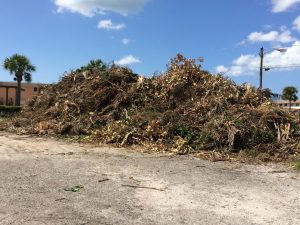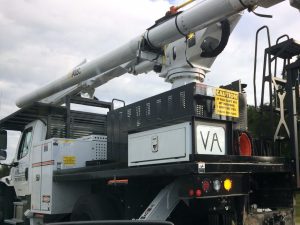 Abstract: This project will develop an approach for coordinated restoration of infrastructure services following disruptive events in interdependent power and transportation systems. This approach accommodates behavior adaptation in the recovery of physical aspects of infrastructure. This adaptation is not well understood or integrated with current restoration plans. By better understanding adaptive behaviors and their dependence on different infrastructures and coordinating recovery across these infrastructures, such a framework can help households return to productive activities faster. For instance, if employees cannot commute, they may work remotely if power is available. This approach to infrastructure restoration has the potential to substantially improve the efficiency of post-disaster return to productive daily life. If infrastructure recovery is coordinated and focuses on actual needs, restoration also may be more cost effective. To help realize these benefits, the project’s team of civil engineers, social scientists, and computer scientists will convey research results through practitioner-oriented seminars held with FEMA, state emergency management agencies, transportation authorities, and electric power utilities. The multi-disciplinary approach and outreach activities developed for Virginia Tech’s Center for the Enhancement of Engineering Diversity and the University of Michigan’s Detroit-Area Pre-College Engineering Program will help broaden the research participation of underrepresented groups and attract new students to the respective fields.
Abstract: This project will develop an approach for coordinated restoration of infrastructure services following disruptive events in interdependent power and transportation systems. This approach accommodates behavior adaptation in the recovery of physical aspects of infrastructure. This adaptation is not well understood or integrated with current restoration plans. By better understanding adaptive behaviors and their dependence on different infrastructures and coordinating recovery across these infrastructures, such a framework can help households return to productive activities faster. For instance, if employees cannot commute, they may work remotely if power is available. This approach to infrastructure restoration has the potential to substantially improve the efficiency of post-disaster return to productive daily life. If infrastructure recovery is coordinated and focuses on actual needs, restoration also may be more cost effective. To help realize these benefits, the project’s team of civil engineers, social scientists, and computer scientists will convey research results through practitioner-oriented seminars held with FEMA, state emergency management agencies, transportation authorities, and electric power utilities. The multi-disciplinary approach and outreach activities developed for Virginia Tech’s Center for the Enhancement of Engineering Diversity and the University of Michigan’s Detroit-Area Pre-College Engineering Program will help broaden the research participation of underrepresented groups and attract new students to the respective fields.
Technically, the proje ct’s objectives include: developing improved methods for collecting, analyzing, and archiving tweets and webpages – integrated with data collected from official or specialized sources – in support of understanding the interplay of behavior and power and transportation infrastructures in disruptions; collecting novel data with activity diaries that incorporate adaptation and use of technologies; determining how the nature of information about infrastructure disruptions and the way in which individuals process this information shape responses to disruptions and preferred tradeoffs; identifying how these behavior adaptations induce or magnify substitutive interdependencies between transportation and power systems; and developing recovery strategies that coordinate among the infrastructures and account for adaptation. To achieve these objectives, the study will use social media, official utility and transport information, and activity panel surveys to develop behavioral and infrastructure outage models that feed a coordinated, behaviorally-aware power and transport recovery model using optimization and agent based modeling. The project team’s approach specifically examines the adaptation of individuals who pursue alternate means to accomplish an activity goal and the interdependence between power and transportation infrastructure that results from this adaptation during disruptions. This approach is applied to a case study in a metropolitan area.
ct’s objectives include: developing improved methods for collecting, analyzing, and archiving tweets and webpages – integrated with data collected from official or specialized sources – in support of understanding the interplay of behavior and power and transportation infrastructures in disruptions; collecting novel data with activity diaries that incorporate adaptation and use of technologies; determining how the nature of information about infrastructure disruptions and the way in which individuals process this information shape responses to disruptions and preferred tradeoffs; identifying how these behavior adaptations induce or magnify substitutive interdependencies between transportation and power systems; and developing recovery strategies that coordinate among the infrastructures and account for adaptation. To achieve these objectives, the study will use social media, official utility and transport information, and activity panel surveys to develop behavioral and infrastructure outage models that feed a coordinated, behaviorally-aware power and transport recovery model using optimization and agent based modeling. The project team’s approach specifically examines the adaptation of individuals who pursue alternate means to accomplish an activity goal and the interdependence between power and transportation infrastructure that results from this adaptation during disruptions. This approach is applied to a case study in a metropolitan area.
